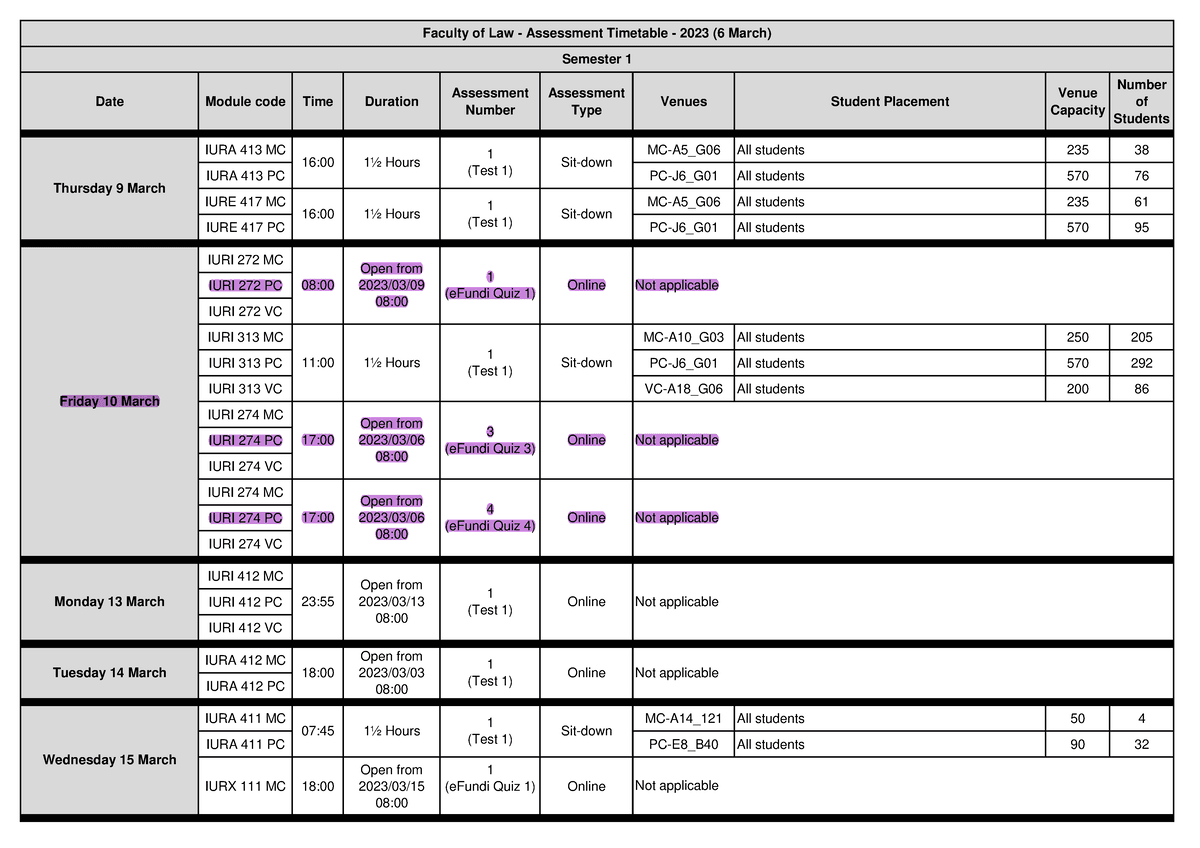
NWU Exam Timetable: A Comprehensive Guide for Students in South Africa
Introduction
The North-West University (NWU) is a prominent higher education institution in South Africa, renowned for its academic excellence and diverse student body. Like many universities worldwide, NWU follows a structured academic calendar that includes examination periods to assess students’ knowledge and understanding of the course material. The NWU exam timetable plays a crucial role in organizing and scheduling these examinations, ensuring a smooth and efficient assessment process. This comprehensive guide provides detailed information about the NWU exam timetable, including its significance, key dates, registration procedures, and essential tips for students to excel in their exams.
Significance of the NWU Exam Timetable
The NWU exam timetable holds immense importance for students, faculty, and the university administration. It serves as a roadmap for the examination period, outlining the specific dates, times, and venues for each exam. This structured schedule allows students to plan their study and revision strategies effectively, allocate their time wisely, and avoid any potential clashes or overlaps in their exam schedule.
For faculty members, the exam timetable ensures that examinations are conducted in a fair and organized manner, adhering to academic standards and regulations. It facilitates the timely distribution of exam papers, collection of answer scripts, and subsequent marking and grading processes.
The university administration relies on the exam timetable to allocate resources, such as examination venues, invigilators, and support staff, efficiently. It enables the smooth coordination of examination-related activities, including the preparation of exam papers, printing of answer sheets, and the secure storage and transportation of examination materials.
Key Dates and Registration Procedures
The NWU exam timetable typically covers two main examination periods: the mid-year examinations and the final examinations. The mid-year examinations are usually held in May/June, while the final examinations take place in October/November. The exact dates for each examination period may vary slightly from year to year, so it is essential for students to consult the official NWU academic calendar for the most up-to-date information.
Registration for examinations is a crucial step that students must complete to secure their place in the exams. The registration process typically opens a few weeks before the commencement of the examination period. Students are required to register online through the NWU student portal, selecting the courses they wish to write exams for and confirming their preferred examination venues. It is important to note that registration deadlines are strictly enforced, and late registrations may not be accepted.
Tips for Excelling in NWU Exams
Plan and Organize: Create a detailed study schedule that allocates sufficient time for each subject and topic. Prioritize your studies based on the difficulty of the courses and the weightage of each exam.
Understand the Course Material: Thoroughly review your lecture notes, textbooks, and any additional resources provided by your instructors. Make sure you have a clear understanding of the key concepts, theories, and formulas covered in each course.
Practice Regularly: Regularly solve past exam papers, practice questions, and assignments to familiarize yourself with the exam format and question types. This will help you identify your strengths and weaknesses and focus your revision efforts accordingly.
Attend Revision Lectures and Tutorials: Many NWU departments offer revision lectures and tutorials closer to the exam period. These sessions are designed to reinforce important concepts and provide additional support to students. Attending these sessions can be highly beneficial in clarifying doubts and boosting your confidence.
Manage Your Time Effectively: During the exam period, it is crucial to manage your time wisely. Arrive at the exam venue early to avoid any last-minute stress. Allocate sufficient time to each section of the exam, ensuring you have enough time to complete all questions thoroughly.
Read the Exam Instructions Carefully: Before starting the exam, carefully read and understand the instructions provided on the exam paper. Pay attention to the time limit, the number of questions, and any specific instructions regarding the format of your answers.
Answer Questions Clearly and Concisely: Write your answers in a clear and organized manner, using legible handwriting or typing if permitted. Ensure your answers are relevant to the question and demonstrate your understanding of the concepts. Avoid unnecessary details or irrelevant information.
Review Your Answers: Once you have completed the exam, take a few minutes to review your answers. Check for any errors or omissions, and make any necessary corrections. This final review can help you identify and rectify any mistakes before submitting your answer sheet.
Conclusion
The NWU exam timetable is an essential tool that guides students, faculty, and the university administration through the examination period. By understanding the significance of the exam timetable, adhering to key dates and registration procedures, and following effective study strategies, NWU students can excel in their exams and achieve academic success.